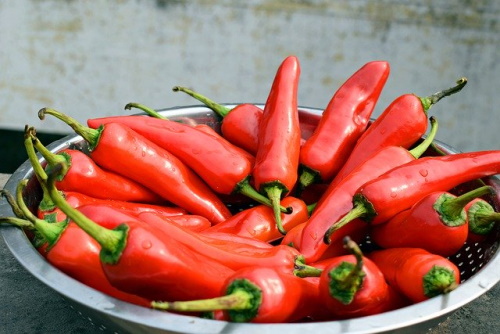
Before we get into gastritis foods to avoid, let’s take a few moments to learn more about this condition. This is the inflammation of the gastric mucosa usually caused by inappropriate dietary habits or by aggressive substances to the stomach such as:
- Alcoholic beverages and coffee.
- Certain drugs, particularly anti-inflammatories such as aspirin.
- Foods or drinks excessively hot (such as tea) or cold (such as beer or ice cream).
- Tobacco: Smoking releases nicotine and tars that dissolve in the saliva and move to the stomach where they can cause gastritis.
Dietetic treatment of gastritis requires a soft, bland diet that will not irritate the stomach. The gastritis foods to avoid helps you stay away from anything that may irritate the gastric mucosa. Other irritants of the mucosa include tobacco and nervous tension.
Antacid drugs commonly prescribed for gastritis are of little effect unless unhealthful lifestyle and dietary habits are corrected.
Top Gastritis Foods to Avoid
BEER: Because of its alcohol content, its carbonic acid, and the fact that it is drunk very cold, beer is very aggressive toward the gastric mucosa. The healing of gastritis requires total abstinence from beer. Even non-alcoholic beer is harmful in cases of stomach inflammation.
ALCOHOLIC BEVERAGES: Alcohol irritates the gastric mucosa. This results in increased gastric juice production, which briefly improves digestion, but results in stomach inflammation. The result of regular consumption of wine or other alcoholic beverages is permanent inflammation of this organ, known as chronic gastritis.
STIMULANT BEVERAGES: Coffee, tea, mate, and caffeinated soft drinks are harmful because of their caffeine content.

COFFEE: Coffee is among the top gastritis foods to avoid, because it increases the production of stomach acid and fosters gastritis. This is due not only to caffeine but also to the substances that form the coffee’s essence. Consequently, decaffeinated coffee is also harmful to the stomach, although to a lesser degree than regular coffee.
SOFT DRINKS: Soft drinks usually contain sugars, chemical additives, and carbonic acid (gas), all of which irritate the stomach.

HOT SPICES: It has been well established that hot spices increase the flow of gastric juices, but at the cost of inflammation and physical damage to the gastric mucosa similar to that produced by aspirin. Eating black or white pepper, for example, produces and exfoliation of the cells of the mucosa and microhemorrhages within the stomach. Spice consumption fosters gastritis and interferes with the healing process.
SHELLFISH: Shellfish consumption produces inflammation in the digestive mucosa due, among other factors, to the high concentration of toxins they contain and how difficult they are to digest.

MEAT: The nitrogenated non-proteic substances contained in meat, which belong primarily to a chemical group known as purines, give meat its typical flavor. Unfortunately, these substances also increase the production of gastric juices and produce a certain amount of stomach inflammation. Meat consumption fosters gastritis and interferes with its cure.
SUGARS: Excess sugar irritates the gastric mucosa and encourages the proliferation of certain bacteria such as ‘Helicobacter pylori’, which causes gastritis and ulcers.
ICE CREAM: Intense cold produces vasoconstriction and diminished blood flow in the gastric mucosa, which weakens it and makes it susceptible to inflammatory processes.
CITRUS FOODS: Citrus foods can be difficult to digest and harmful to an inflamed gastric mucosa because of their acidity.
Top Rated Supplements for Gastritis
DISCLAIMER: All content on this website is presented solely for educational and informational objectives. You should not rely on the information provided as a replacement for advice, diagnosis, or treatment from a qualified medical expert. If you are pregnant, nursing, or have any preexisting medical concerns, you should talk to your doctor before using any herbal or natural medicines.
REFERENCES
- George D. Pamplona-Roger, M.D. Encyclopedia Of Foods and Their Healing Power. Trans. Annette Melgosa. Vol. 2. Chai Wan: Editorial Safeliz, 2005. 184 – 185.
- Johns Hopkins Medicine: https://www.hopkinsmedicine.org/gastroenterology-hepatology
- Mayo Clinic: https://www.mayoclinic.org/diseases-conditions/gastritis/diagnosis-treatment/drc-20355813
- National Institute of Diabetes and Digestive and Kidney Diseases: https://www.niddk.nih.gov/health-information/digestive-diseases/gastritis-gastropathy
- American College of Gastroenterology: https://gi.org/guidelines/
- Cleveland Clinic: https://ada.com/conditions/chronic-gastritis/
- WebMD: https://www.webmd.com/digestive-disorders/digestive-diseases-gastritis
- Healthline: https://my.clevelandclinic.org/health/diseases/10349-gastritis
- Harvard Health Publishing: https://www.health.harvard.edu/digestive-health/h-pylori-and-gastric-cancer
- Mayo Clinic: https://www.medicalnewstoday.com/articles/gastritis-treatment
- Medical News Today: https://www.healthline.com/health/gastritis-diet
